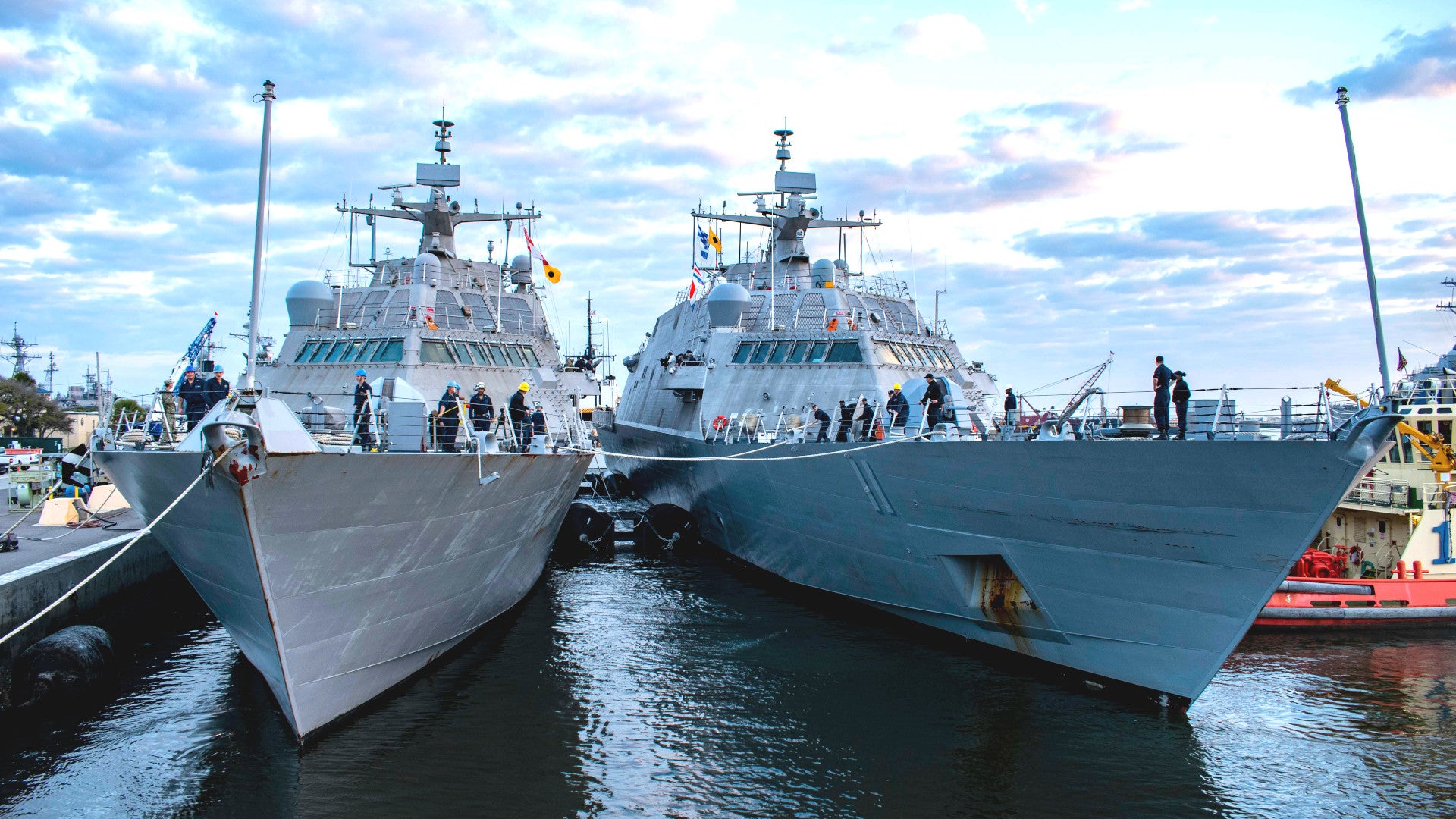The U.S. Navy will reportedly seek to decommission between eight and 10 Freedom class Littoral Combat Ships, or LCSs, as part of its budget proposal for the 2023 Fiscal Year. This would be despite the oldest example still on active duty being only seven years old. Last year, the service admitted that it would take years to implement critical fixes to the propulsion systems on all of the Freedom class vessels it has acquired to date.
Politico
first reported this news today, citing three individuals familiar with the plans. The outlet said that the Navy and the Department of Defense had declined to confirm or deny that the 2023 Fiscal Year budget request, a public version of which is expected to come out sometime this month or in April, would propose decommissioning these ships. The Freedom class is one of two distinct types of LCS, the other being the Independence class, that the Navy currently has in service.

Last September, the Navy decommissioned the USS Freedom, leaving it with only nine other Freedom class LCSs in service. All of the remaining ships were delivered between 2015 and 2020, making the entire fleet extremely young. The Navy officially took delivery of another one of these LCSs in November, the future USS Minneapolis-Saint Paul, but has not commissioned it. It also has five more on order, one of which is in the process of being fitted out and the other four being in earlier phases of construction.

Given the total number of ships involved, it seems more likely than not that the eight to 10 Freedom class LCSs that the Navy may now be looking to mothball includes four that it had previously announced it wanted to have withdrawn from service by the end of this month. That quartet includes the second Freedom class LCS ever produced, the USS Fort Worth. Freedom and Fort Worth, which were commissioned in 2008 and 2012 respectively, have different configurations from later ships in the class and have already been relegated to test and training roles years ago.
If the Navy does ultimately pursue this decommissioning plan, it could amount to an effective resetting of the Freedom class, which has been plagued by major issues with its water jet propulsion system. A design flaw has led to repeated failures in the combining gear on multiple ships in this class in recent years. The combining gear connects a set of gas turbines to the main diesel engines that power these vessels, allowing them to hit top speeds of over 40 knots, something that was a key Navy requirement during development. These LCSs can only sail at between 10 to 12 knots on the diesel engines alone.
Last year, the future USS Minneapolis-Saint Paul
Freedom class ship to receive a fix that the Navy says will rectify this issue. The service had refused to accept any more of these vessels until this design fix was ready. This months-long modification required large holes to be cut in the ship’s hull and then for it to be essentially rebuilt. The service has not disclosed how much all of this will cost, in total, or how much of that burden fell on the prime contractor for these ships, Lockheed Martin.

This reported proposal to decommission all of the existing Freedom class ships would seem to indicate that the Navy has determined that it is not worth the cost to implement this fix fleet-wide. If true, this can only be yet another massive black mark on the LCS program, as a whole, which has continually failed to meet expectations more than a decade after the first examples entered service.
The program has made some progress as of late, notably in the integration of new Naval Strike Missile anti-ship cruise missiles on a growing number of Independence class ships, and the Navy has worked to step up operational deployments of both types of LCS. However, the total number of LCS deployments remains relatively low given the total number of ships and how long they have been in service. To date, no Freedom or Independence class types have ever sailed in the Middle East, an area of the world where the Navy has said in the past that they would be ideally suited.

Beyond that, these ships have proven to be exponentially more expensive and complicated to operate and maintain than originally advertised, with each one costing the Navy almost as much annually as an Arleigh Burke class destroyer. They also still have relatively limited capabilities, overall, compared to what had been expected and the first operational examples of two of three specialized modular mission packages have yet to be delivered. The Navy already long ago scrapped its original idea of being able to readily swap out one package for another to increase operational flexibility.
It is important to note that members of Congress routinely block attempts by the U.S. military as a whole to divest major weapons, including warships, for a host of reasons. Even if the Navy does propose decommissioning these LCSs, legislators may well block that plan or at least put it on hold until certain conditions are met. If lawmakers do allow the service to implement this plan, it is possible that it could have broader ramifications for the future of the Freedom class and the service’s overall force structure goals.
The Navy is already working to acquire an entirely new, much more capable class of small surface combatants, the Constellation class frigates, which are set to be built in the same shipyard as the Freedom class LCSs. Those ships are a core component of the service’s questionably ambitious plan to field a total of at least 500 ships and submarines, including various unmanned platforms, in the coming years.
All told, it will be very interesting to see what the Navy’s exact plans for the Freedom class might be and what Congress will allow them to do with these ships going forward.
Contact the author: joe@thedrive.com
